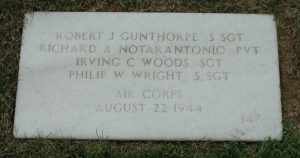Cook, Glenn Richard
Air Force Captain

Glenn Richard Cook, age 24, from Charlotte, North Carolina, Mecklenburg county.
Service era: Vietnam
Date of death: Tuesday, October 21, 1969
Death details: On October 21, 1969, an O-2A Skymaster (tail number 68-10975) with two crew members conducted an aerial reconnaissance mission over the To Hop Valley in South Vietnam. The aircraft made radio contact when it was in the vicinity of (GC) BP 587 459. At that time, the pilot reported that the weather in the original target area was unsuitable and that he was heading for a different target identified earlier. However, the Skymaster was not heard from again, and never returned to base. An extensive search and rescue effort over the mission area failed to locate the missing aircraft or a crash site. The remains of the observer aboard the aircraft were eventually recovered and identified, but the other crew member remains unaccounted for.
First Lieutenant Glenn Richard Cook, who entered the U.S. Air Force from North Carolina, served with the 21st Tactical Support Squadron and was the pilot of this Skymaster at the time of its loss. His body was not recovered. Following the incident, the Air Force promoted 1st Lt Cook to the rank of Captain (Capt). Today, Captain Cook is memorialized on the Courts of the Missing at the National Memorial Cemetery of the Pacific.
Source: National Archives, Defense POW/MIA Accounting Agency

